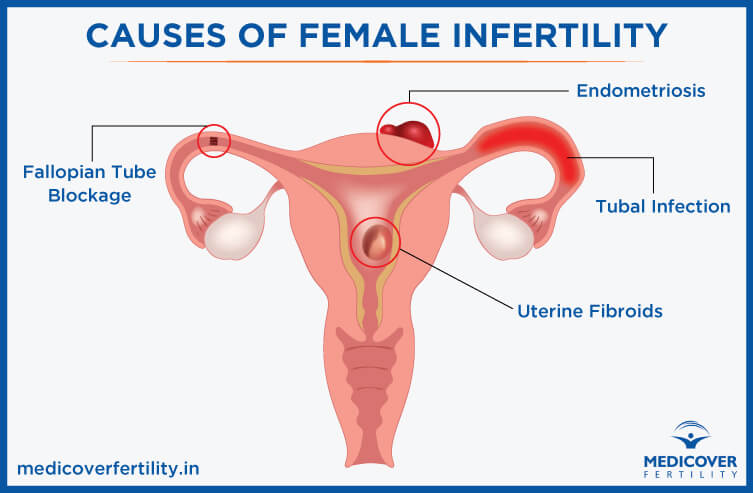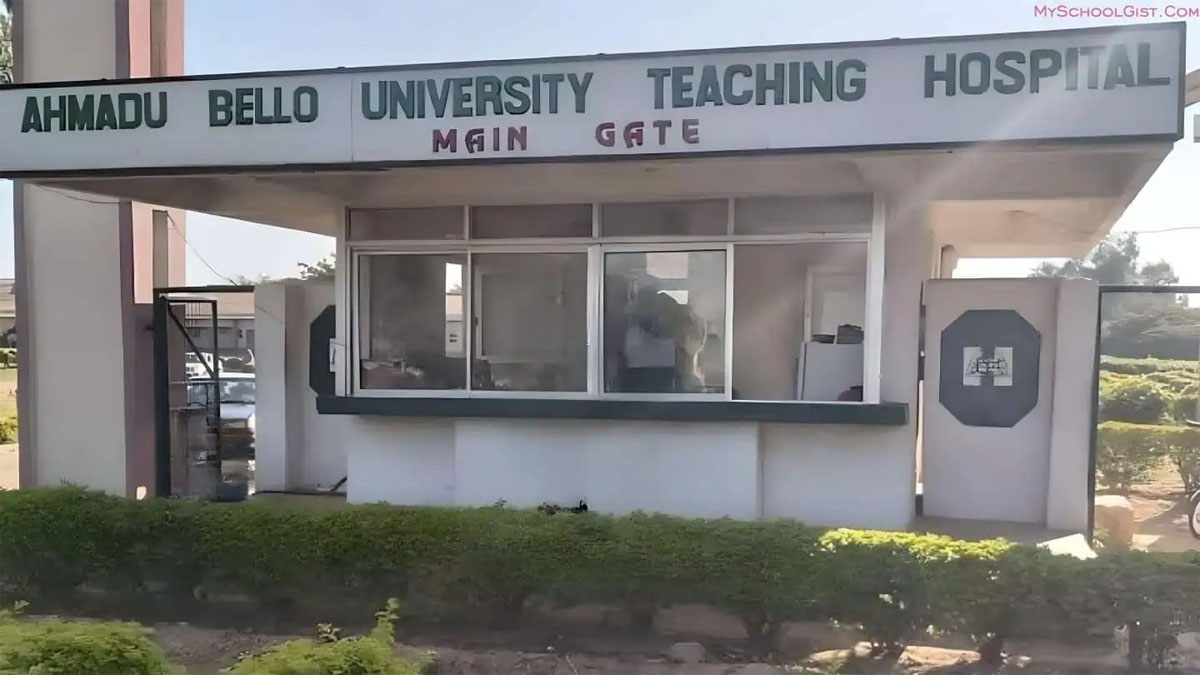Health
No respite for infertile couples as treatment cost skyrockets

When Doris, a 30-year-old civil servant suffered series of successive pregnancy failures, she and her spouse were encouraged to seek specialized pregnancy care service.
Before then, the couple had tried to conceive for more than six years going from one doctor to another until a gynaecologist diagnosed Doris with incompetent (blocked) fallopian tubes and referred her to a fertility specialist.
After series of preliminary tests and investigations, the couple was advised to try Invitro Fertilisation, IVF, but was in for a shock to learn that it would cost between N1 million and N1.5 million for a single cycle of the procedure. This sum, it was gathered, excludes the cost of assessment, tests, drugs and other incidentals.
The couple’s anxiety escalated when it was made clear that for best results, patients undergoing IVF treatment are recommended to budget for a three-IVF cycle plan.
In Nigeria an estimated 90-95 per cent of IVF and other treatment costs are paid out-of-pocket with just a handful of patients having access to some form of financial support plan. Doris and her spouse belong to the out-of-pocket paying group.
The foregoing exemplifies the financial challenge of seeking assisted fertility treatment in Nigeria where raising children is already challenging under the prevailing economic downturn.
Though most infertile couples readily seek at least one type of fertility treatment, high cost is a major hindrance to achieving their dream of parenthood.
Reproductive health officials told Vanguard that for couples that require donor eggs, donor sperms, or donor embryos plus any additional form of third party intervention such as surrogacy or other technically specialized procedure, the cost is often several times more than that of a normal IVF cycle because there are additional charges to contend with.
Vanguard gathered that infertility treatment costs are not fixed across board, rather costs are usually personalised.
It was further learnt that major factors that determine the cost include the patients’ diagnosis, recommended procedure, as well as the location and sophistication of the treatment centre.
Most of the centres are based in Lagos in Ikeja, Surulere, Ikoyi, Victoria Island and the Lekki/Ajah axis. Several other centres are in the Federal Capital Territory, FCT, Abuja, Port Harcourt, and Asaba to mention a few.
Vanguard findings show that the cost of a routine diagnostic test for infertility ranges between N150,000 and N300,000. This may include semen analysis, blood tests for hormone levels, biopsy, genetic testing, etc.
A medical consultation along with an initial assessment may be offered at a one-time cost of around N100,000. A reassessment is often necessary after six months of the initial assessment at additional cost.
One of the ART consultants told Vanguard that the cost of a standard Intrauterine Insemination, IUI, cycle (including cost of drugs), ranges between N300,000 and N500,000 while subsequent/repeated IUI cycle goes for N250,000 and up to N450,000.
He explained that one of the key determinants of the cost is the location of the centre where the procedure is carried out.
Vanguard findings reveal that in Nigeria, the cost of a single IVF cycle in a decent centre or hospital begins from around N1.0 million up to N1.5 million excluding the cost of drugs. For a two-cycle plan, the cost is between N1.6 million and N2.6 million while a three-cycle plan is in the range of N2.1 million up to N3.6 million all excluding the cost of drugs.
If the cost of drugs is factored in, the overall cost could go up by at least an additional N1 million for each category.
Additional costs for other interventions
It was further disclosed by the practitioners that couples that require additional intervention pay extra.
For instance, the cost of opting for one cycle of a combination of IVF plus Intracytoplasmic Sperm Injection, ICSI, (a technically sophisticated procedure for addressing sperm related male-factor infertility) is between N2.0 million and N3.0 million.
Each subsequent cycle of IVF with ICSI combination is between N1.5 million and N2.5 million depending on the treatment centre.
For couples that require donor eggs, cost of a single IVF cycle is between N2.4 million and N3.1 million inclusive of screening of the donor but excluding the cost of drugs.
For two IVF cycles with donor eggs, couples pay from N4.8 million up to N6.0 million, while the cost of a three-cycle IVF plan with donor eggs goes between N5.5 million and N6.7 million inclusive of screening of the donor but excluding the cost of drugs.
Subsequent repeated cycles with donor eggs start from around N2.4 million per cycle with the cost of drugs adding at least N1 million extra to each category.
Vanguard learnt that if donor sperm is required for the IVF cycle, the costs vary, as sperm banks and fertility centres fix their own prices. The procedure per cycle is between N1.3 million and N1.8 million inclusive of insemination and screening of the donor but excludes the cost of drugs.
One frozen embryo transfer (FET) cycle including the cost of drugs ranges between N0.9 million and N1. 6 million depending on the centre and its location.
For couples that desire to preserve their embryos, the cost of embryo freezing per quarter (per embryo) at average of N100,000.
Other service charges
Endoscopy is an investigative /diagnostic procedure where a thin, lighted tube (endoscope) is inserted into the uterus to examine it for infections, diseases or any abnormalities.
The most frequently carried out gynecological endoscopy procedures are hysteroscopy and laparoscopy.
The cost of these procedures range from N300, 000 up to N3.0 million depending on the patient’s diagnosis/requirements and location of the fertility clinic or centre.
From findings, average cost of basic fertility treatment in Nigeria including consultation, investigation, counselling tests, drugs and follow up starts from a conservative N1.3 million.
Cost of surrogacy higher
If for any reason, a woman is unable to carry her own pregnancy, a surrogate can do it for her. Surrogacy is the involvement of a third party in the infertility treatment process. There are two types of surrogacy – traditional and gestational.
Traditional surrogacy uses the biological father’s sperm to artificially inseminate the surrogate mother who then carries the baby for the intended parents.
A traditional surrogate shares a genetic connection with the baby she carries.
For gestational surrogacy, IVF is utilised to create an embryo that is then carried by the surrogate, thus the surrogate has no genetic ties with the baby since her eggs are not used. This is the more commonly utilised method.
The average cost of gestational surrogacy varies and could range between N5.0 million and N8.0 million or more depending on whether or not it includes the IVF treatment fees, surrogate fee, diagnostic assessments, drugs, legal fees among other costs.
Overseas option still higher
Further investigation reveals that infertility treatment is even more expensive abroad. In the United Kingdom for instance, similar treatment procedures would attract around N3.0 million excluding the cost of visas, flight tickets, accommodation, feeding and other ancillary charges.
In the United Arab Emirates which has become the hub of medical tourism lately, the same treatment would attract up to N3.3 million; USA N5.5 million; South Africa N2.1 million; India N1.8 million; Germany N2.7 million; Spain N2.8 million; Denmark N2.6 million; Greece N2.3 million and Czech Republic N2.2 million
Practitioners explain the cost
Professor Osato Giwa –Osagie, renowned IVF specialist and Co-pioneer of IVF in Nigeria, says the high cost of IVF treatment in Nigeria is not unconnected with the poor state of the economy as well as infrastructural and manpower challenges in the health sector.
Giwa-Osagie encouraged the setting up of even more fertility centres as well as intensive financial support.
“Most of the things utilised in IVF are imported and some are consumables that are used just once and discarded.
“Getting appropriately trained and qualified personnel like the nurses, embryologists and clinicians is still a challenge.
“The equipment is expensive and most centres have to acquire more than one, sometimes two or even three equipment of the same kind for just one procedure because of the issue of maintenance locally. All this adds to the cost.”
According to the “Biological and Social Aspects of Human Infertility: A Global Perspective” published in the Oxford Research Encyclopedia: “Progress for lower-cost state-of-the-art infertility treatment options is desirable.
“However, progress will depend on getting policies right, building health systems that work well and ensuring availability of enough trained medical staff.”
Nigeria’s health funding
For Nigeria, this would include an increase in per capita expenditure within the health system to meet WHO recommendation.
Nigeria has been far behind the recommendations and also behind peer group of nations in healthcare funding, a situation that has forced almost all infertility treatment to be on out-of-pocket expense.
In 2018, as stated by the latest available data by the World Bank, the per capita health expenditure for Nigeria was $84.
In comparison, figures for other developing countries are: Algeria $256, Brasil $848, Gabon $218, Ghana $78, India $73, Kenya $88, Mexico $520, Namibia $471, Pakistan $42, Rwanda $58, Senegal $59, South Africa $526, Tunisia $252, and Uganda $43.
Nigeria has never met the Abuja Declaration target of allocating at least 15 percent of the overall national budget to health.
The closest that the country has got to the target was in 2012 when N289, 770 billion or 6.23 percent of the N4, 648,849 billion federal budget was allocated.
In 2001 when the Abuja Declaration was made, the federal health budget was N41, 269 billion which was 4.46 percent of the N894, 214 billion overall federal budget.
The lowest percentage allocation to health since the Declaration was in 2010 when N185, 765 billion (4.20 percent) of the N4, 427,184 billion federal budget was allocated.
In 2021, the federal allocation to health is N604,191 billion, or 4.45 percent of the N13, 588, 027 billion federal 2021 budget.
This is lower than in 2020 when N575, 228 billion or 5.32 percent of the N10, 810.800 billion federal budget was allocated.
Vanguard News Nigeria
Health
US issues new advisory linking alcohol to cancer

US issues new advisory linking alcohol to cancer
The United States’ Surgeon General, Dr. Vivek Murthy, has issued a public advisory emphasizing the significant link between alcohol consumption and cancer.
Released Friday, the guidance is based on research identifying alcohol as a contributor to at least seven types of cancer.
According to the advisory, alcohol increases the likelihood of developing cancers of the throat, liver, esophagus, mouth, larynx, colon, and rectum. It further identifies alcohol as the third leading preventable cause of cancer in the U.S., following tobacco use and obesity.
“Alcohol is a well-established, preventable cause of cancer responsible for about 100,000 cases of cancer and 20,000 cancer deaths annually in the United States – greater than the 13,500 alcohol-associated traffic crash fatalities per year in the U.S. – yet the majority of Americans are unaware of this risk,” Dr. Murthy stated. “This Advisory lays out steps we can all take to increase awareness of alcohol’s cancer risk and minimize harm.”
How Alcohol Contributes to Cancer
The advisory outlines four primary mechanisms by which alcohol increases cancer risk:
Acetaldehyde Exposure: Alcohol breaks down into acetaldehyde, a chemical that can damage DNA and elevate cancer risk.
Oxidative Stress: Alcohol triggers oxidative stress, harming DNA, proteins, and cells while causing inflammation.
Hormonal Changes: Alcohol alters hormone levels, such as estrogen, which has been linked to an increased risk of breast cancer.
READ ALSO:
- Edo LG chairman, 8 councillors, defect to APC
- Ghana President Akufo-Addo’s address disrupted as ADC collapses (Video)
- Vegas Tesla blast suspect shot himself in head – Officials
The advisory notes that more than 16% of breast cancer cases are associated with alcohol use.
Enhanced Absorption: Alcohol facilitates conditions that allow it to be absorbed more readily, compounding its risks.
The advisory also emphasizes that individual risk is influenced by a combination of biological, environmental, social, and economic factors.
Steps to Mitigate Risk
Dr. Murthy’s recommendations include adding warning labels to alcoholic beverages highlighting the cancer risk and reassessing guidelines on alcohol consumption limits. He encourages individuals to make informed decisions about their alcohol intake and calls on healthcare professionals to educate the public about the risks.
“Too many Americans are living with an outdated assumption that some amount of alcohol is not only harmless, but also good for you,” the advisory warns.
Expert Reactions
Dr. Marc Siegel, a clinical professor at NYU Langone Health, supported the advisory’s findings. “Increasing evidence shows that [alcohol being harmless] isn’t true,” he told Fox News Digital.
Dr. Siegel noted that alcohol, often viewed as a stress-reliever, is a “proven toxin” with clear links to diseases of the liver, heart, and brain. While traditional guidelines suggest moderate drinking—up to one drink daily for women and two for men—Siegel pointed out, “In fact, no amount of alcohol is healthy.”
The pandemic further complicated the issue, with alcohol consumption rising by 25% during periods of heightened stress and isolation.
“The timing of this advisory is right on the mark,” Dr. Siegel added, stressing the need for a public shift in understanding alcohol’s risks.
US issues new advisory linking alcohol to cancer
(FOX NEWS)
Health
ABU Teaching Hospital will begin kidney transplant in 2025 – CMD

ABU Teaching Hospital will begin kidney transplant in 2025 – CMD
The Ahmadu Bello University Teaching Hospital (ABUTH) Zaria is set to begin kidney transplant surgeries in 2025, aiming to provide relief to patients with kidney failure and reduce medical tourism.
Prof. Ahmed Umdagas, the hospital’s Chief Medical Director, revealed this in an interview with the News Agency of Nigeria (NAN) on Sunday in Zaria.
He announced that the Urology Centre of Excellence, which will deliver advanced urology services, is expected to be operational by the first quarter of 2025.
“By the first quarter of 2025, ABUTH would commence kidney transplant. What was just holding us was a few infrastructure,” Umdagas said.
He added that most of the required machines and equipment are already in place, and personnel have been adequately trained to deliver the services.
Umdagas stated that the Urology Centre of Excellence at ABUTH would be ready by the first quarter of 2025 to deliver high-quality urology services.
“By the first quarter of 2025, ABUTH will commence kidney transplants. What has been holding us back is a few infrastructure upgrades,” he said.
READ ALSO:
- Nigeria gets World Bank $1.5bn loan
- S’Korea orders probe after deadly plane crash
- Oldest ex-US President Jimmy Carter dies at 100
He added, “Besides that, most of the machines and equipment required for kidney transplants are available, and our personnel have been adequately trained to provide the services.”
Amenity wing for enhanced patient care
Umdagas also revealed plans for an Amenity Wing, designed to accommodate patients from all classes.
According to him, the Amenity Wing will feature a single-bedroom and a room-and-parlor option for affluent patients, emphasizing that ABUTH is committed to offering world-class services.
“The Amenity Wing will have a dedicated line and a website,” Umdagas explained. “The website will showcase the profiles of doctors in the hospital. When a patient wants to see a specific professor or specialist, they will simply need to use the dedicated line or the website to book an appointment seamlessly.”
Cutting costs for imaging services
Similarly, the Chief Medical Director (CMD) also disclosed that a contract has been awarded for the procurement of linear machines to enhance cancer care at the facility.
Speaking on additional efforts to curb medical tourism, the CMD highlighted that ABUTH boasts a fully functional 128 Slice CT Scan machine.
He explained, “If you undergo an investigation abroad requiring the 128 Slice CT Scan, it costs no less than $200, which is over N300,000. Meanwhile, ABUTH charges just N30,000 for the same service.”
Advanced imaging and lithotripsy services
The CMD noted that many patients now come to ABUTH for scans, take the results abroad, and continue their treatments there.
“We also have 1.5 Tesla MRI and 0.2 Tesla MRI machines, which are advanced imaging technologies. These machines are fully functional, and the cost for such services at ABUTH is significantly lower than what is charged elsewhere in Nigeria.” , He said.
He added, “We also perform lithotripsy at ABUTH, which involves breaking stones using lasers instead of surgery.”
IVF milestones and future plans
Umdagas further shared that the hospital had celebrated over five successful IVF cases in collaboration with its partners.
He revealed plans to establish a dedicated unit for IVF services in future budgets, ensuring all necessary equipment is housed in one facility.
ABU Teaching Hospital will begin kidney transplant in 2025 – CMD
Health
NAFDAC destroys N120bn ‘merchants of death’ fake products

NAFDAC destroys N120bn ‘merchants of death’ fake products
The National Agency for Food and Drug Administration and Control (NAFDAC) announced that it destroyed over ₦120bn worth of seized products between July and December 2024 across the six geopolitical zones and the Federal Capital Territory.
NAFDAC also reassured Nigerians that measures are in place to safeguard their health before, during, and after the yuletide season.
This was disclosed in the Christmas message from NAFDAC’s Director-General, Prof. Mojisola Adeyeye, as contained in a statement signed by the agency’s Resident Media Consultant, Sayo Akintola, on Sunday.
Adeyeye emphasised the importance of eating safely during the Yuletide period and advised Nigerians to purchase food and drinks from outlets with identifiable addresses to facilitate the agency’s tracking processes.
She warned against eating pharmaceuticals and packaged food products that do not have NAFDAC registration numbers, noting that exceptionally low-cost products are likely to be contaminated.
READ ALSO:
- Lagos govt nightclubs, worship centres must obtain permit for amplified sound
- Alleged missing N180m: It’s a prank, Singer Dammy Krane says
- Inter Milan crush Cagliari 3-0 to top Serie A
She also revealed that the agency’s Investigation and Enforcement Directorate is continuing to remove substandard and fraudulent pharmaceuticals, as well as unwholesome food items, from marketplaces around the country.
“Officers from the Investigation and Enforcement, Pharmacovigilance, and Post-Marketing Surveillance Directorates are in the field confiscating falsified medicines, fake wines and drinks, and unwholesome food products that could jeopardise public health during the festive season,” she said.
In December 2024, the agency destroyed expired and unregistered drugs worth ₦11bn in Ibadan and seized counterfeit alcoholic beverages and medicines worth billions of naira in Lagos.
In Nasarawa State, the agency uncovered a factory packaging counterfeit rice and confiscated over 1,600 bags worth ₦5bn.
Adeyeye emphasised NAFDAC’s commitment to ensuring that the Nigerian market only contains safe, high-quality food and medicines.
She warned that the agency would step up efforts to put counterfeiters out of business, branding them as “merchants of death.”
NAFDAC destroys N120bn ‘merchants of death’ fake products
-

 metro1 day ago
metro1 day ago‘Deepen Shariah knowledge to curb misinformation’
-

 metro1 day ago
metro1 day agoIlorin: Retired works controller murdered on New Year’s Day
-

 metro1 day ago
metro1 day agoJealous husband stabs Bishop to death over allege affair with wife
-

 metro1 day ago
metro1 day agoTinubu’s refusal to honour Seyi’s pact with us disappointing – Nnamdi Kanu’s family
-

 Politics3 days ago
Politics3 days agoHow Tinubu outsmarted Buhari to become president – Ojudu
-

 metro15 hours ago
metro15 hours agoMosques should be research centres – Varsity don
-

 metro3 days ago
metro3 days agoHorror in Ogun as twin brothers kill, dismember sex worker
-

 metro3 days ago
metro3 days agoFire razes police station, buildings in Lagos









